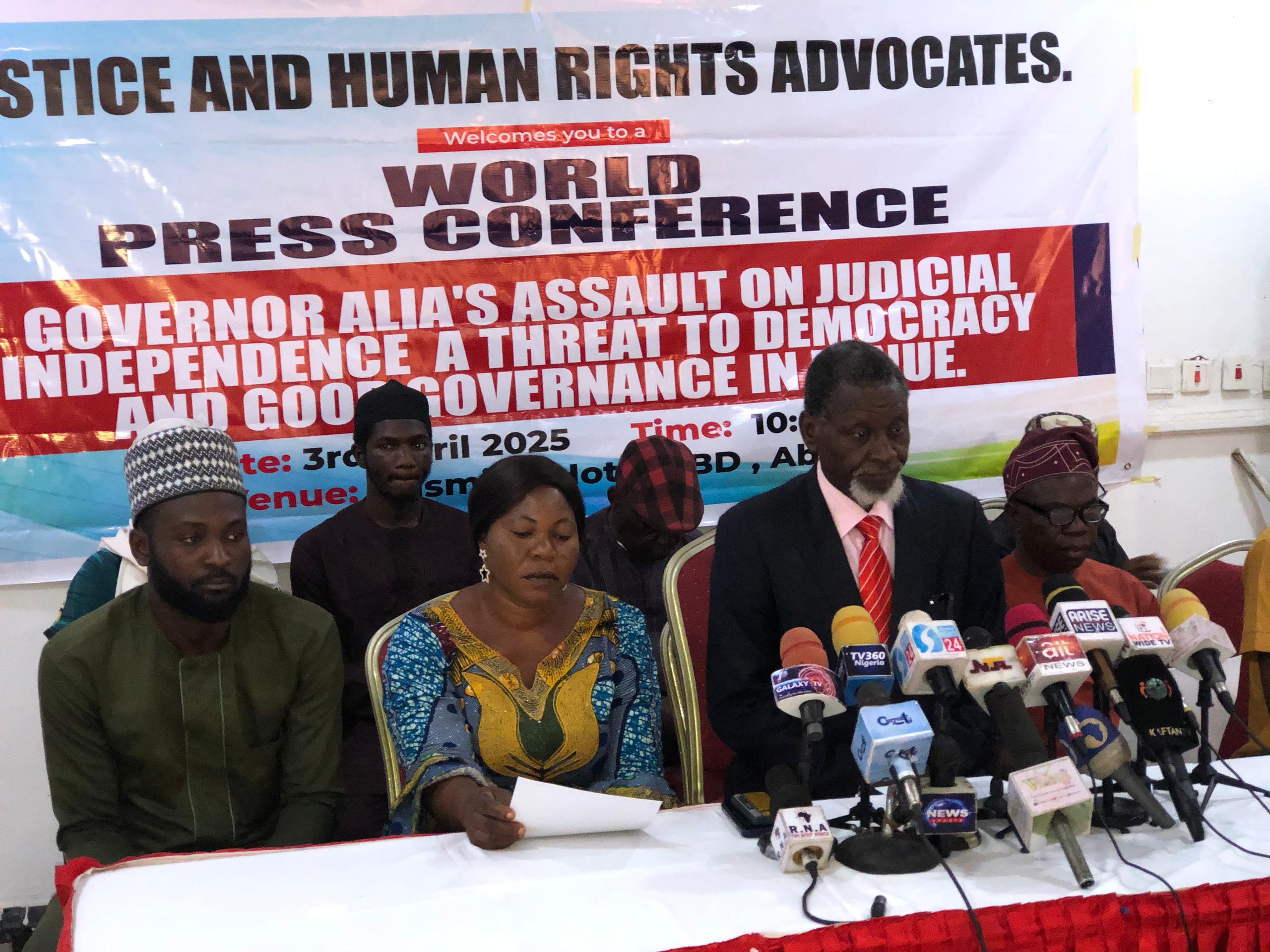Justice and Human Rights Advocates have faulted Governor Hyacinth Alia of Benue state over the appointment of caretaker local government chairmen in breach of the directive of the National Industrial Court.
The Executive Director of the group,
Dr. Emmanuel Agabi at a press conference held in Abuja on Thursday argued that the action remains a blatant disregard for judicial authority and the rule of law.
The right group contended that the decision not only violates also contravene established legal precedents, including a Supreme Court judgment that outlawed the dissolution of elected local government councils and the establishment of caretaker committees by state governors.
The group emphasized by proceeding with these appointments, Governor Alia undermines the judiciary’s role in upholding constitutional governance and sets a concerning precedent for the erosion of democratic principles in the state.
The group also upbraided the Governor Alia led administration over alleged poor funding of the Judiciary, attempted unconstitutional removal of the state Chief Judge, interference with the legislative arm, attempted bribery of the National Judicial Council, violent assault on Judges: and Executive rascality and high-handedness
They alleged that the state’s judiciary suffers from deliberate underfunding, leading to deplorable conditions within court facilities. Courtrooms are plagued by broken windows, inadequate seating for lawyers and litigants, and the absence of functional sanitation facilities, forcing individuals to resort to open defecation within court premises.
They claimed that the lack of electricity hampers judicial proceedings, and the High Court library remains outdated with obsolete research materials, undermining the judiciary’s effectiveness in the state.
They argued that failure to pay judiciary staff salaries has resulted in prolonged strikes, effectively paralyzing judicial activities in the state and denying citizens their right to timely justice.
They observed that despite the government’s announcement of a new ₦75,000 minimum wage, judiciary workers were excluded from this implementation, leading to further discontent.
According to the group, the government’s inability to resolve these salary disputes not only hampers the judiciary’s functionality but also erodes public trust in the state’s commitment to uphold the rule of law.
They claimed, among others allegation of gross misconduct, that Governor Alia’s interference with the legislative arm is evident through his influence over the selection of principal officers and the alleged sponsorship of the suspension of 13 assembly members who opposed the removal of the Chief Judge.
“This suspension, deemed unconstitutional by legal experts, undermines legislative independence. Additionally, the closure of the legislative complex, forcing sessions to convene under executive oversight, further compromises the separation of powers essential for democratic governance,” they noted.
“Allegations have surfaced regarding attempts to bribe the NJC with ₦500 million to influence judicial decisions. Reports indicate that certain government functionaries in Benue State allocated these funds in a bid to manipulate the outcome of proceedings related to the removal of the state’s Chief Judge, Justice Maurice Ikpambese.
“Such actions, represent a grave affront to the integrity of our judicial system. Same members of the NJC were treated with disregard during the swearing-in ceremony of High Court judges, where members of the National Judicial Council traveled to Benue State to attend. However, Governor Alia reportedly abandoned them after they waited the entire day, leading to some judges and lawyers remaining at the venue until the next day. This act of disrespect not only undermines the judiciary but also tarnishes the state’s reputation.”
They thereby called on the Economic and Financial Crimes Commission (EFCC) and the Independent Corrupt Practices and Other Related Offences Commission (ICPC) to conduct a thorough investigation into these allegations to uphold the sanctity of judicial processes.


